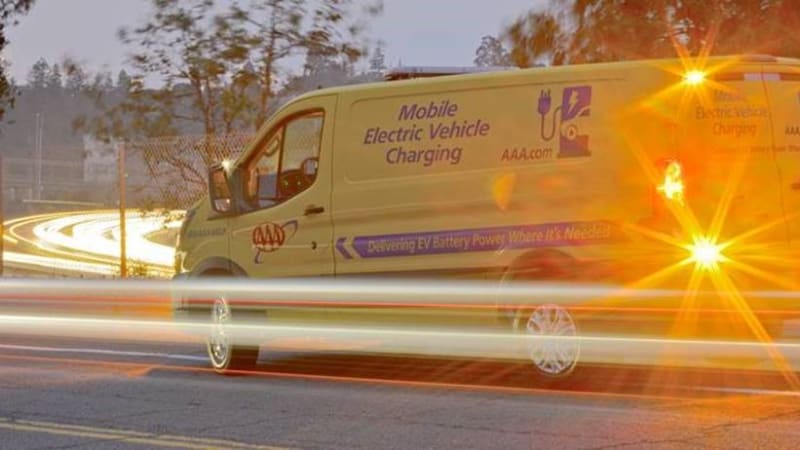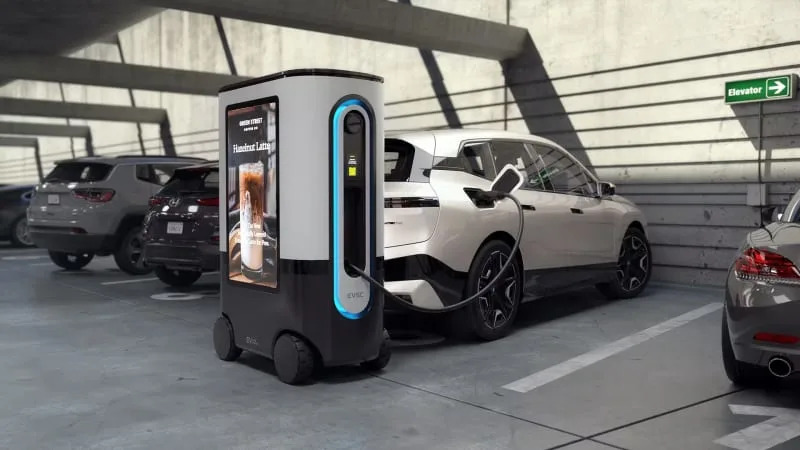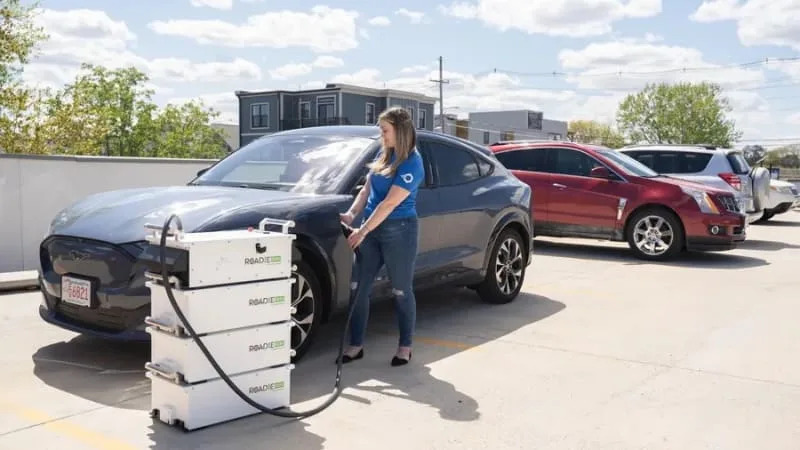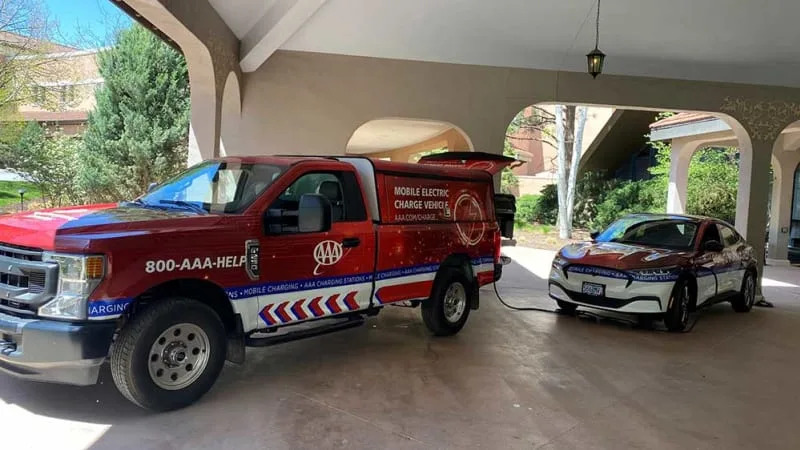Mobile EV chargers aim to fill public charging gaps

The U.S. has about 50,000 public charging stations for electric vehicles, compared to an estimated 145,000 retail locations to purchase fuel for a gas-powered car. That’s the prime source of the dreaded charging anxiety — the worry that you could run out of power in the middle of a trip.
Not only are current and would-be EV drivers worried about whether they can find charging, they’re also concerned charging infrastructure might not work. More than 20% of EV drivers in the U.S. said they have pulled up to a charging station and been unable to charge their vehicle due to equipment malfunction, according to a study from J.D Power, a data analytics company.
A slew of startups are attempting to solve this problem by developing mobile chargers, from clunky metal boxes on wheels to sleek robots ready to prowl parking lots. While startups are seeing an initial wave of interest from vehicle fleets — which often park where charging infrastructure is unavailable — the technology may become more widespread for everyday drivers in the future.
The charging network currently being built out across the U.S. “is the backbone” for drivers ”to feel confident that they can use an electric vehicle to go long distances,” said Alan Jenn, assistant professor at the Institute of Transportation Studies at the University of California, Davis. “Mobile chargers offer a slightly different, slightly nuanced sort of charging experience, and these things are going to find a home somewhere.”
EV manufacturer Lightning eMotors has developed a mobile charger called Lightning Mobile, which weighs a whopping 9,900 pounds (4,500 kilograms) and costs more than $300,000. Not exactly what one might consider “portable,” the unit functions more like a generator that can be rolled up anywhere charging infrastructure is lacking, including remote locations, event spaces and fleet depots. Up to four vehicles can plug in at a time.
The Lightning Mobile unit has been on the market for a few years, and Lightning eMotors has seen a recent increase in interest and demand, according to Nick Bettis, vice president of sales and marketing operations, particularly on the West Coast where EVs are rapidly spreading.
Solutions like these, which offer scaled charging off the grid, can help drivers get through charging deserts — large stretches of road with no public charging infrastructure — like the Appalachian Trail or Route 66, according to Seth Leitman, an electric vehicle expert.
They can also be lifesavers when it comes to power outage scenarios following natural disasters or grid blackouts, Bettis added.

Another emerging solution comes in the form of a rolling robot on wheels named ZiGGY, currently being developed by Los Angeles-based startup EV Safe Charge. The robot is designed to operate in parking lots and garages and can be reserved by a driver on an app. It will then occupy a designated parking space and serve as a mobile charger once the driver arrives. The startup recently won a contest held by the city of Barcelona and is set to pilot ZiGGY in municipal parking garages there.
This type of shareable mobile charger could be a game-changer for urban spaces, like apartment buildings or airports where real estate is at a premium, according to Leithman. While not currently commercially available, Chief Executive Officer Caradoc Ehrenhalt said the company is planning to deploy the chargers worldwide “as soon as possible.”

Businesses that need charging anywhere from warehouses to event spaces can rely on the Roadie Portable, created by Massachusetts-based SparkCharge. This mobile charger fits right in the back of an EV. It can supply up to 20 kilowatts of power and can provide up to 14 hours of power with the additional battery units, according to the company. (The units are customizable, which can affect the price. The company didn’t share specific pricing details.)
“These industries are increasingly integrating EVs into their operations and require immediate access to charging,” said Joshua Aviv, SparkCharge’s chief executive officer. “This ensures that EV drivers can have their vehicles charged anytime, anywhere, and ultimately accelerate the transition to a sustainable future.”
Even if you happen to find yourself deserted on the road without a handy robot or mobile charger, one can come right to you.

AAA has rolled out a roadside assistance program in 24 cities, from Denver to Nashville, to help EV drivers who run out of juice. The company can dispatch mobile chargers, allowing stranded motorists to charge their EV enough to make it to their destination or a proper charger.
“We want to make our members feel comfortable that they can make that switch to EVs and know that AAA will have their back,” said Greg Bannon, director of automotive engineering research at AAA.
As public charging infrastructure continues to improve, however, future demand for mobile chargers could shrink.
“One of the challenges that they have to overcome is by making it mobile and having the extra battery unit, it can be pretty expensive,” said Jenn. “Because of that, I don’t think that these would necessarily be super widespread solutions.”
Chargers on wheels simply serve as a bridge solution until EV drivers feel confident in the public network, according to Arcady Sosinov, chief executive officer of FreeWire Technologies, which specializes in EV charging solutions.
However, companies making them can be successful if they find the right applications for charging off the grid. Multi-unit dwellings where building stationary charging infrastructure is likely to be challenging to install could be a sweet spot, Jenn said.
“It really is kind of the Wild West for charging technology and infrastructure right now,” he added. “Everyone is still learning a lot about what works and what doesn’t. I wouldn’t be so quick to dismiss anything yet.”







